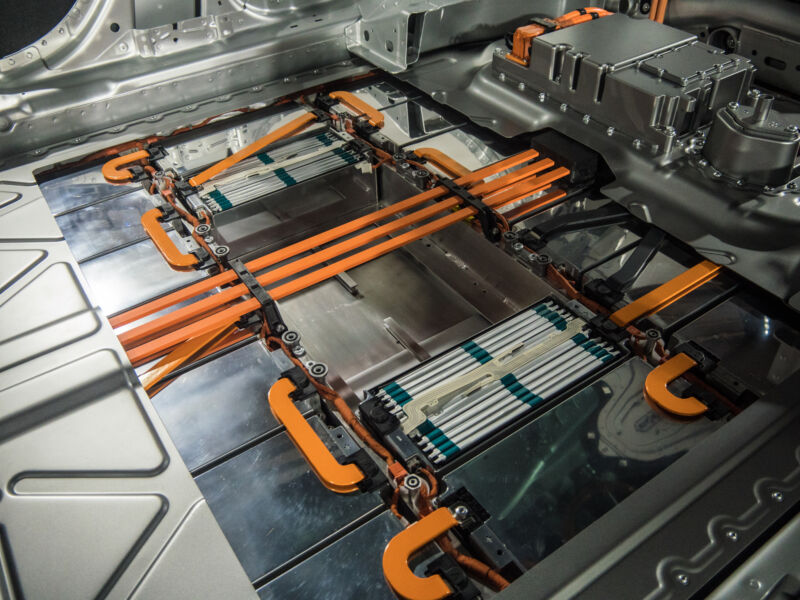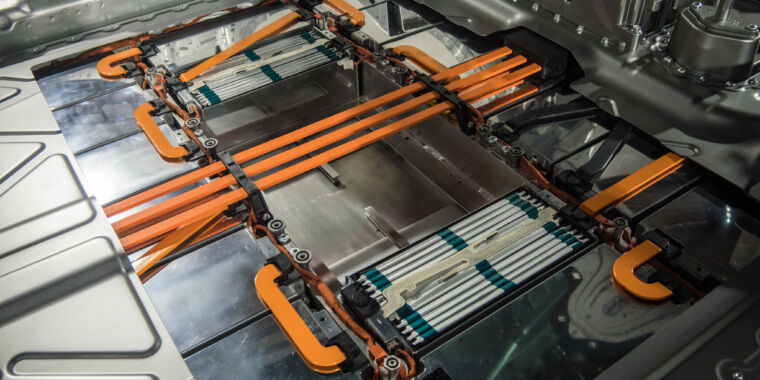
Jonathan Gitlin
The Jaguar I-Pace deserves more credit. When it debuted in 2018, it was one of two electric vehicles on sale that had a range that could rival Tesla’s. The other was the far more plebeian Chevrolet Bolt, which was cheaper but nowhere near as luxurious and not as fun to drive. Now some I-Pace and Bolt owners have something else in common, as Jaguar has issued a recall of some 2019 model year I-Paces due to a fire hazard likely caused by poorly folded battery anode tabs.
The problem doesn’t affect all I-Paces, only those built between Jan. 9, 2018, and March 14, 2019, a total of 2,760 cars in the U.S. So far, three fires have been reported following software updates that Jaguar’s recall report says “do not provide an appropriate level of protection for 2019MY vehicles in the U.S.”
While Jaguar’s investigation is ongoing, the company says its battery supplier (LG Energy Solutions) is inspecting some battery modules that have been identified by diagnostic software as “having characteristics of a folded anode tab.” In 2021, problems with LG batteries — in this case, folded separators and cracked anode tabs — led Chevrolet to recall all Bolts on the road and replace their batteries under warranty, costing more than $1.8 billion.
For now, Jaguar’s recall is less drastic. A software update limits the maximum charge of affected cars to 80 percent, preventing the packs from charging to 100 percent. Jaguar also says that, like other OEMs that have issued recalls for similar issues, patched I-Paces should be parked away from buildings and charged outdoors if possible for 30 days following the recall.

